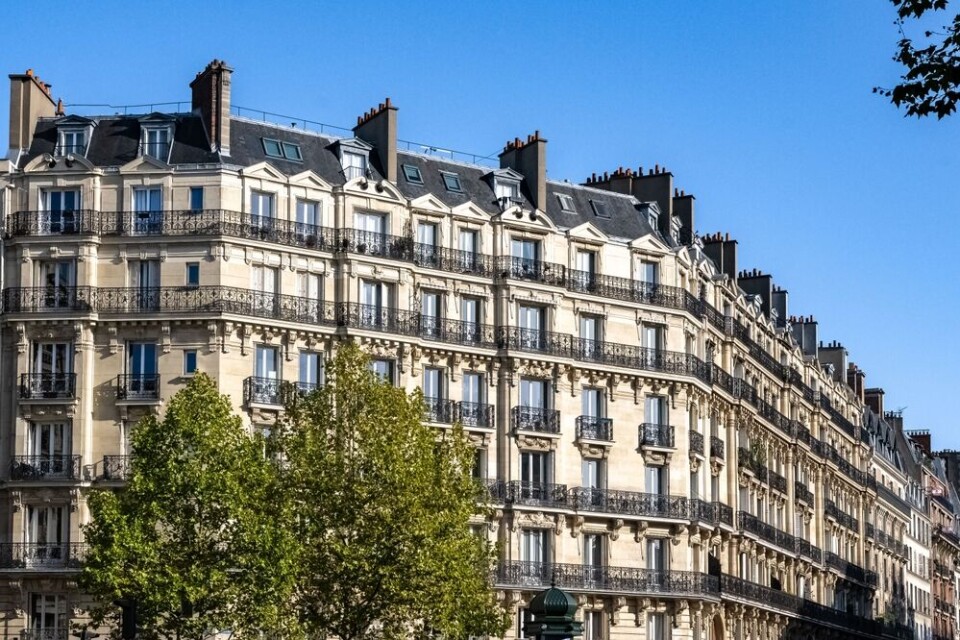-
Airbnb can be seen by tax office as 'similar to a hotel' if too many services are offered to clients
Classification as 'non-professional' furnished landlord used to be a simple way to declare revenue
-
Why your home insurance in France is likely to increase
Climate change-related claims cost more than €5 billion last year
-
Mushroom contamination makes French couple’s home a ‘health risk’
The issue could cost the couple €50,000 to fix
How Paris plans to crackdown on second homes and empty properties
The 8th arrondissement has the most unoccupied buildings, with a rate of 36%

The city of Paris has revealed plans to cut the number of second homes and empty properties in the capital, with an estimated 20% of all residential properties in the city currently unoccupied
‘Desperately empty buildings’
The number of empty properties in the city has risen significantly in the past 10 years, figures show.
The First Deputy Mayor of Paris Emmanuel Grégoire asked the Atelier Parisien d'Urbanisme (APUR) to look into the situation.
On December 5 a report was released by the APUR showing that the number of empty residential buildings had risen from 14% in 2011 (191,000 homes) to around 19% in 2020 (262,000 homes).
It also showed that just under half of owners of these properties live in the Paris region - suggesting that they are investors; 20% live abroad.
Paris mayor measures
Mr Grégoire said that the time has come to “put the issue of the sustainability of unoccupied housing on the table”.
The APUR report showed that between 2011 and 2020, the city had a net loss of 35,000 primary residences, after constructing 37,000 homes but recording 72,000 vacant homes during the same period.
Mr Grégoire announced plans to “continue to build despite the limited availability of land…raise the height of buildings…convert business premises…[and increase] the average cost of leaving a home [empty]” over the coming years. He said the city cannot “continue to suffer this growth” of empty properties.
The mayor’s office is also calling for legislative tools to increase taxation of unoccupied homes as a greater deterrent to keeping empty properties. “Our aim is to double or triple the tax on vacant homes and the council tax on second homes,” said Jacques Baudrier, deputy mayor in charge of housing.
Read more: What is France’s empty homes tax and why more people will be paying it
Mr Grégoire has also called for more powers of requisition of vacant homes, and restrictions (for example, in Switzerland, there are maximum quotas allowed per district).
“The priority must be to house people,” he said, “Not to protect the individual right to own a second or third home.”
8th arrondissement is emptiest
In terms of geographic spread across the capital, the rich centre-west 7th arrondissement has nine times as many second homes as the 20th, but the 8th arrondissement has the most unoccupied buildings, with a rate of 36%.
“There are some very beautiful buildings in the Place François-Ier area [8th arrondissement] that have been closed for 20 years,” a consultant from the Belles demeures de France agency told Le Monde.
At a Paris city council meeting in October, the mayor of the 8th arrondissement, Jeanne d'Hauteserre, lamented the “desperately empty buildings” in the area, and said: “[The district] has lost almost half of its inhabitants in fifty years.”
The definition of 'unoccupied' includes a number of different types of property, including vacant second homes, or properties used infrequently for professional reasons.
These kinds of properties have increased significantly in number since 2011. In the 1970s, they made up 3% of the stock in Paris; by 2011, this had risen to 7%, and by 2020 it was at 10% (134,000 properties).
Declining population
This trend is also seen in the overall decline in the population of Paris. From 2011 to 2020, the city lost an average of 11,500 inhabitants each year, in sharp contrast to the gain of 14,000 per year from 2006 and 2011.
“According to the APUR’s demographic scenarios, if the proportion of unoccupied homes continues to rise in line with recent trends, Paris could lose 247,000 inhabitants by 2040,” warned Mr Grégoire.
Undeclared tourist accommodation
The APUR said that the increase in empty residences was “partly linked to the increase in undeclared furnished tourist accommodation”, such as Airbnbs, which must be registered with authorities in Paris to operate legally.
In February 2023, the APUR said that there were 55,000 listings in Paris on the Airbnb website alone, and estimated that almost 90,000 properties in the city are used for tourist rentals. It said that there was probably also “a very high rate of fraud”.
Read more: Airbnb host and company fined €189,000 for illegal rental in Paris
Read more: Airbnb found liable for illegal sublet of Paris home
The Ville de Paris has estimated that around 25,000 flats that are supposed to be ‘primary residences’ are actually being rented out on short-term platforms throughout the year.
Related articles
Hundreds more areas in France to levy ‘vacant home’ tax: what is this?
Tourism tax: €148m paid to French communes from Airbnb stays in 2022
Why woman could break 120-day Airbnb legal rental limit for Paris home
























